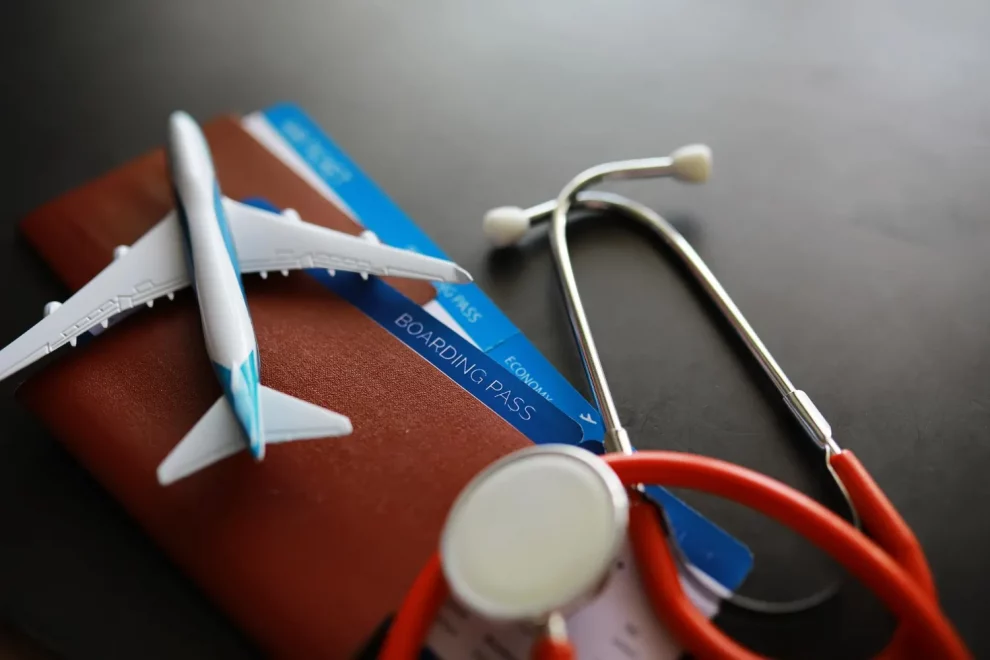The medical tourism sector has experienced a tremendous transformation, moving from a specialized market to a worldwide industry. The desire of patients to have access to a wider range of medical services globally, along with cost reductions, is what is driving this transition in healthcare.
Evolution and Historical Context
In the past, medical tourism was frequently restricted to elective or cosmetic procedures in a select few nations that were well-known for fusing travel with medical care. But as wealthy-country healthcare prices have surged and emerging-market economies have established their healthcare infrastructures, the picture has changed dramatically. These days, a broad range of medical services are included in medical tourism, such as luxury surgery, cancer treatments, and holistic wellness programs.
Impact of Technology
Medical tourism has undergone a significant transformation because to technology. Patient encounters have become more seamless and productive thanks to telemedicine, electronic health records, and cutting-edge diagnostic technologies. By guaranteeing continuity of care and improving patient outcomes, this technological integration makes it possible to perform pre-treatment consultations and post-operative care remotely.
Care Quality and Certification Requirements
The emphasis on healthcare quality has increased, and patients are now more selective about their medical travel locations based in large part on international certification criteria. These guidelines, established by JCI and other organizations, guarantee that healthcare institutions abroad adhere to strict patient safety and healthcare quality standards. Patients can therefore anticipate receiving care that is frequently on par with or even better than that which they would receive at home.
Various Locations and Amenities
The classic medical tourism hotspots in Asia and Latin America have been joined by nations in Eastern Europe, the Middle East, and Africa in terms of geographical reach. These areas are drawing patients because of their distinctive combination of cutting-edge healthcare, rich cultural history, and affordable costs. With nations specializing in specialized surgeries or treatments—often prompted by investments in niche healthcare industries and localized expertise—the variety of services offered has also expanded.
Financial and Individual Gains
One of the key factors still driving medical tourism is cost savings. The cost of many operations and treatments provided in medical tourism locations is significantly lower than that of the patient’s own nation. Beyond just financial gain, patients also benefit personally from lower procedure wait times and access to treatments that might not be available in their native nation.
Experience of the Patient and Aftercare
In medical tourism, the patient experience has taken on a more comprehensive role, emphasizing the patient’s entire journey in addition to the medical procedure itself. All-inclusive care plans, which consist of rehabilitation centers, lodging, and recreational pursuits, are intended to accelerate the healing process. In order to guarantee that patients have access to the support and care they require after treatment, aftercare—a crucial part of the medical journey—is also getting more attention.
Conscientious Decision-Making
Making well-informed decisions and conducting extensive research are necessary when selecting a medical tourism site. Patients have to assess things like legal considerations, medical professional skill, linguistic compatibility, and the standard of the healthcare infrastructure. A more effective and fulfilling medical trip can be achieved with careful planning and consultation with medical tourism specialists.
Prospective Courses
The future of medical tourism is characterized by a commitment to innovation, patient satisfaction, and integration of services. Emerging trends include the incorporation of advanced medical research, development of niche treatment areas, and an increase in public-private partnerships to bolster healthcare offerings. The industry is also seeing a shift towards more sustainable and responsible medical tourism practices, reflecting a broader global trend towards ethical and sustainable business practices.
Sustainable and Ethical Issues to Consider
Sustainable and moral business practices are becoming more and more important as the medical tourism sector develops. This include addressing worries about how medical tourism affects regional healthcare systems, making sure patients are treated fairly and ethically, and putting ecologically friendly procedures into place in medical institutions.
To sum up, The medical tourism sector is a dynamic and ever-evolving one, full of new opportunities and directions as shown by its shifting face. Global patient empowerment is enabling the healthcare business to adapt and provide a wide range of treatments and services through an ever-expanding global network. Medical tourism is expected to continue to play a significant role in the global healthcare scene, offering positive patient outcomes and enhancing accessibility, quality, and patient satisfaction.
We recommend any employers, payer or insurer considering medical tourism to only work with hospitals, clinics and doctors that are either Members of the Medical Tourism Association or who have received Global Healthcare Accreditation (GHA) to ensure that they have the right standards in place, processes and any patient referrals will have a great experience but protections in place.






























